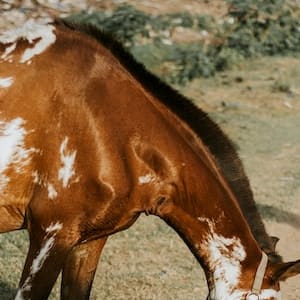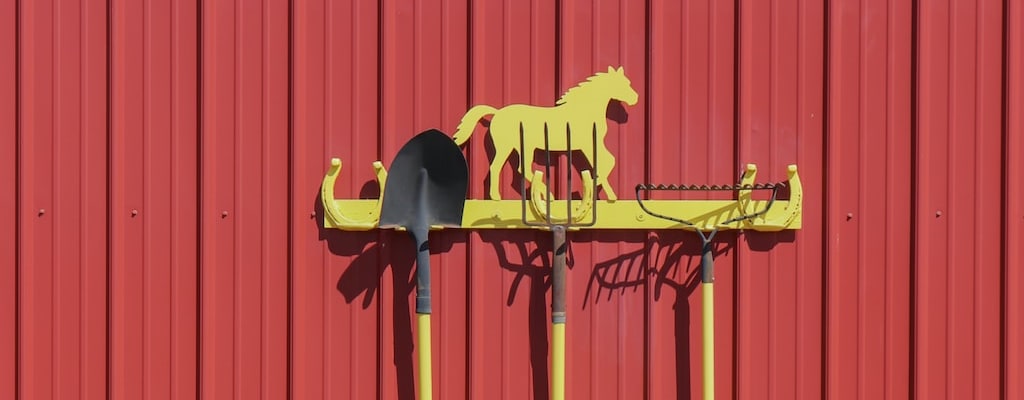bet the ranch: Idiom Meaning and Origin
What does ‘bet the ranch’ mean?
The idiom "bet the ranch" means to risk everything, even one's most valuable possession or asset, in a bet or investment.

Idiom Explorer
The idiom "lay on the line" means to take a risk or be open and honest about something, often exposing oneself to potential danger, criticism, or negative consequences.
The idiom "lay odds" is a widely-used expression in the English language. It is often used in informal conversations and has a specific meaning that is easily understood by native speakers.
The idiom "in for a dime, in for a dollar" means that once you commit to something, you are fully committed and have to see it through to the end, regardless of the consequences or risks involved.
The idiom "high-stakes" refers to a situation in which there is a significant potential gain or loss, usually involving a lot of money or important consequences.
Hedge one's bets is an idiom that originated from the world of gambling. It refers to taking precautions or making backup plans to minimize the risk of loss. The phrase is used in both literal and figurative contexts, indicating a cautious and strategic approach to decision-making.
The idiom "hazard a guess" means to make a guess or estimation without having all the necessary information. It implies taking a risk or chance in offering an opinion or answer.
The idiom "go out on a limb" means to take a risk or to put oneself in a vulnerable position by expressing an opinion or taking an action that is not widely supported or accepted.
The idiom "go for broke" means to take a great risk or make a bold, all-out effort in pursuit of a goal, regardless of the potential consequences or failure.
The idiom "go all the way" means to fully commit or complete a task or action without hesitation or reservation.
The idiom "go all out" means to put in maximum effort or to do something with full dedication and enthusiasm.
High Stakes Origins
Bet the ranch is an idiom that originated in the United States and is commonly used in informal spoken and written English. The exact origin of this idiom is uncertain, but it is believed to have emerged in the mid-20th century, possibly drawing inspiration from the American West. The phrase combines the verb "bet," which means to risk something on the outcome of a particular event, with the noun "ranch," a term that refers to a large farm or estate in the Western United States.
When someone says "bet the ranch," they are expressing their willingness to risk everything they have, including their financial stability or personal assets, on a particular action or decision. It signifies a significant gamble or pushing the limits of one's resources. By using this idiom, speakers convey their extreme confidence or desperation in achieving a favorable outcome, even though the stakes are high.
For example, someone might say, "I'm going to bet the ranch on this new business venture." In this case, the speaker is emphasizing their commitment and dedication to the success of the venture, to the point of risking their entire financial livelihood. The idiom can also be used metaphorically to describe situations where someone invests a significant amount of time, energy, or other resources, expecting a substantial return.
The idiom "bet the farm" is closely related to "bet the ranch" and has a similar meaning. It also comes from the United States and is used to convey a willingness to risk everything on a particular action or decision. The phrase combines the verb "bet" with the noun "farm," which refers to a piece of agricultural land. This idiom is often used interchangeably with "bet the ranch" and carries the same connotation of taking a significant gamble.
The idiom "bet one's boots" is another variant of "bet the ranch." It comes from the idea of being so confident in the outcome of a bet that one is willing to wager their boots, which are essential for walking and symbolize personal belongings. This idiom conveys a strong sense of certainty and conviction in a particular outcome, similar to "bet the ranch."
Similarly, the idiom "bet one's bottom dollar" is related to "bet the ranch" in that it emphasizes the willingness to risk everything on a particular decision. The expression "bet one's bottom dollar" originates from poker, where players would bet their last dollar as a sign of complete confidence in their hand. It conveys a strong belief in the success or accuracy of a particular action or outcome, just like "bet the ranch."
An additional related idiom is "go for broke," which means to risk everything on a single, all-out effort. It can be used interchangeably with "bet the ranch" to convey the idea of taking a significant gamble or making a bold, potentially reckless decision. This idiom originated in the United States during World War II and was adopted into everyday language to describe situations where individuals are willing to give their all, both financially and emotionally, for a desired outcome.
The idiom "bet the ranch" is commonly used in American English and reflects a willingness to take a significant risk or make a bold decision. It originated in the mid-20th century, possibly drawing inspiration from the American West. The related idioms "bet the farm," "bet one's boots," "bet one's bottom dollar," and "go for broke" convey similar meanings and highlight the willingness to risk everything on a particular action or decision. These idioms capture the spirit of confidence, uncertainty, and the potential rewards and consequences of taking a substantial gamble.
Example usage
Examples of how the idiom "bet the ranch" can be used in a sentence:
- He decided to bet the ranch on his new business venture.
- She gambled and bet the ranch at the casino.
- The company decided to bet the ranch on the success of their latest product.
More "Gambling" idioms

